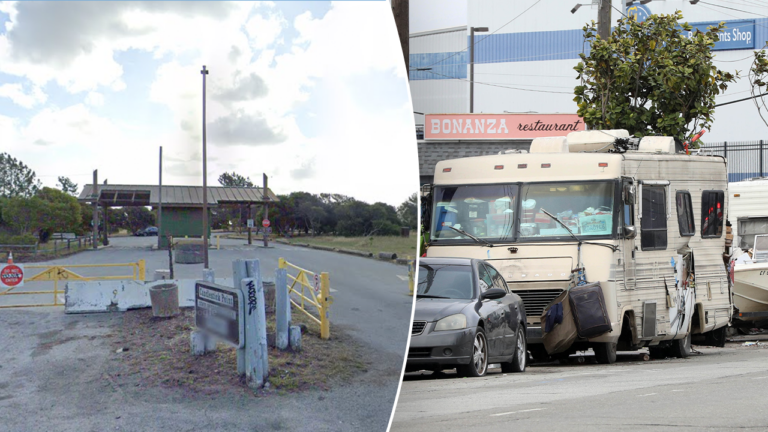San Francisco RV Homeless Program Faces Funding Dilemma
In a bid to address homelessness, San Francisco leaders are facing a conundrum as they strive to extend the lease for an RV parking lot meant to provide shelter for homeless individuals. Despite noble intentions, a recent report has deemed this initiative as the “most expensive homeless response intervention” in the city.
The story began in January 2022 when the city designated a safe parking site at Candlestick Point, initially capable of accommodating 155 recreational vehicles for homeless people. However, as of this year, the lot hosts a mere 35 RVs, mainly due to a lack of electricity.
The startling figures reveal that the annual cost per parking spot hovers around $140,000, a financial burden analyzed by the Board of Supervisors, who concluded that this initiative significantly overshadows other homeless response efforts in terms of cost.
The city previously ran a pilot program in 2021 at another location on San Jose Avenue, providing space for 29 vehicles. This program came at a much lower cost, totaling $1,793,003, which translated to approximately $61,828 per parking spot – less than half the cost at Candlestick Point.
The Board of Supervisors’ Homelessness and Behavioral Health Select Committee unanimously recommended extending the program for another two years in September. If approved, an additional $12.2 million would be allocated to sustain the site.
Supervisor Shamann Walton emphasized that while this endeavor is expensive, the alternative of leaving both unhoused and housed individuals to fend for themselves would be even costlier.
The costs associated with the RV parking lot program encompass renting or purchasing trailers equipped with toilets and showers and providing drinkable water to the residents.
Emily Cohen, Deputy Director of the city’s Department of Homelessness and Supportive Housing, emphasized that there’s much more to it than meets the eye to make this location a safe and dignified place for the homeless.
One significant challenge the site has faced is the lack of electricity. To address this, the city installed diesel generators, which sparked a federal lawsuit from residents who claimed these generators violated the Clean Air Act. Subsequently, solar-powered lights were installed to mitigate the issue.
Supervisors Walton and Hillary Ronen criticized the electricity company PG&E, blaming it as a significant part of the problem. However, PG&E denied responsibility, stating that the city had initially applied for temporary power to support a COVID testing site, which faced delays and was later canceled. Months later, the city reapplied for a different permit at the same location to power the RV site.
Amidst these complications, it is important to remember that the RV parking lot initiative has served 115 people since its inception. The Department of Homelessness and Supportive Housing reported making 13 placements from RVs to permanent housing, although it remains unclear whether this means 13 individuals have secured permanent housing through the program or if more have found homes due to multiple occupants in one vehicle.
Critics living near the RV site have expressed their dissatisfaction with the project, deeming it inefficient. They are calling for an increase in the number of people referred to permanent housing, citing the program’s metrics of success as inadequate.
This ongoing dilemma presents a complex challenge to the city, as it strives to address homelessness with limited resources, raising questions about the best path forward for those in need.

